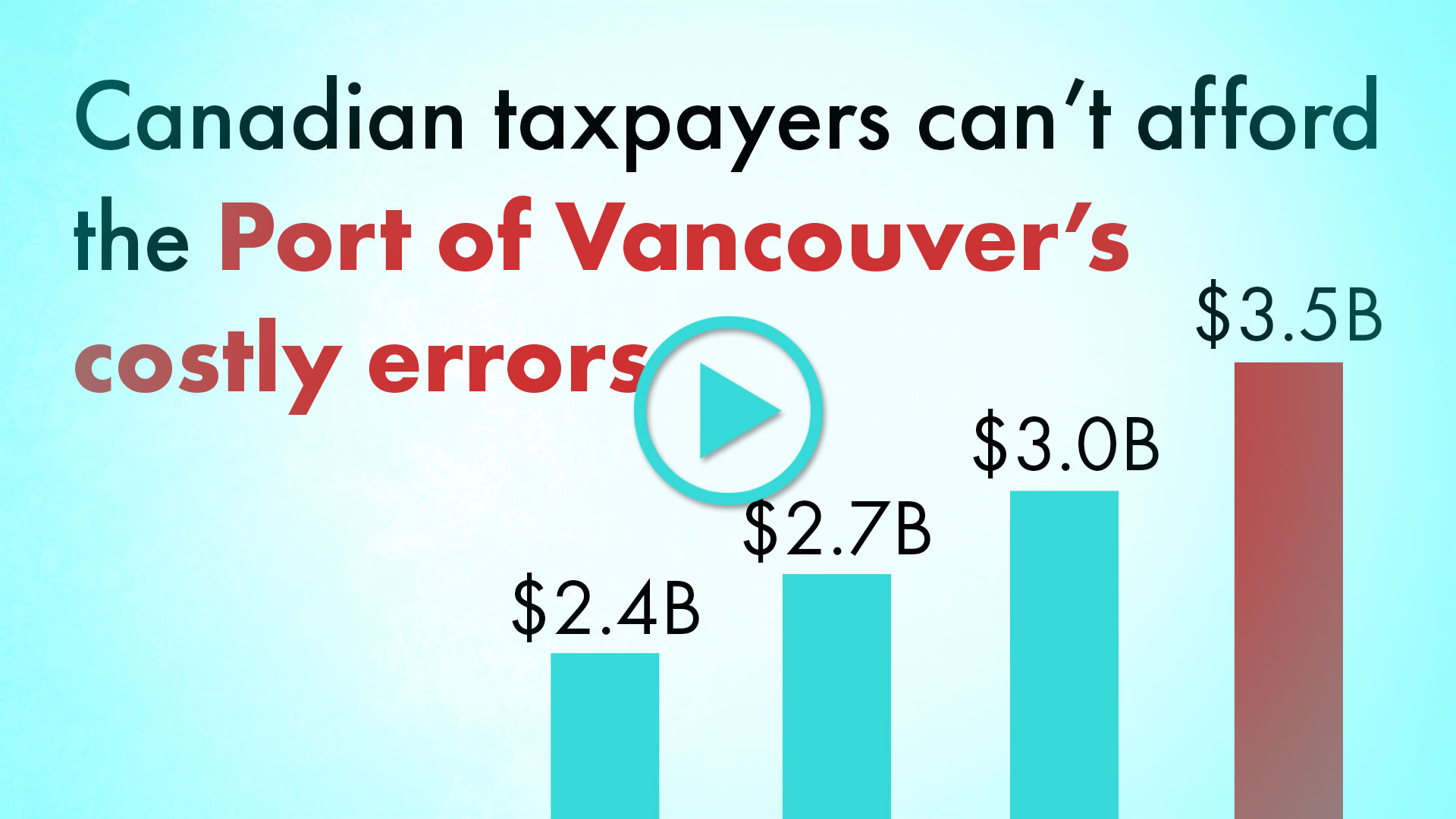Grain companies facing skyrocketing rent at the Vancouver port want Ottawa to intervene.
Wade Sobkowich, executive director of the Western Grain Elevators Association (WGEA), said rent on federal property at the port went up 13 to 30 percent this year.
It’s costing grain terminals hundreds of thousands of dollars every quarter and will total millions before the year is out. Those costs will eventually filter down to producers, he said.
“We’ve asked the minister of transport to get involved,” Sobkowich said.
“We’ve written Marc Garneau and we’ve identified that because of the way the letters patent are written he has the ability to …direct the port to do otherwise. We’ve asked the minister to do that. We have not yet received any response.”
He said the WGEA wrote to the minister as far back as January.
Members believe their rent increases are paying for container-related projects at the port. The port needs to generate revenue to pay its share, Sobkowich said, and that can come only through rent from existing users.
“Apparently they feel they need to generate funds … that aren’t going to be covered by the project proponents, like the container-loading facilities,” he said.
“We have a major problem with that because the project doesn’t benefit the grain terminals at all.”
Sobkowich also said there is an inherent conflict of interest because the port is both a regulator and a developer and the grain companies are captive.
“It’s like another monopoly situation,” he said. “You can’t pick up your terminal and go somewhere else.”
Agriculture and transport ministers in the three prairie provinces have picked up on these concerns and written to both Garneau and federal agriculture minister Marie-Claude Bibeau asking for changes to the port’s board of directors.
Saskatchewan drafted the letter, obtained signatures from the other ministers and sent the letter Sept. 29 before the election writ dropped.
Agriculture minister David Marit said it’s not right that the three provinces have just one representative on the board.
“We’ve asked for each to have two because we are more than 60 percent of the business,” he said.
Aside from grain, the provinces move potash, coal, oil, lumber and other commodities through the West Coast.
The Vancouver Fraser Port Authority’s 11-member board includes eight appointees by the federal government, one appointee from British Columbia, one from the Prairies, and one from the 16 municipalities that border the authority’s jurisdiction.
The current director from the Prairies is Carmen Loberg of Edmonton. He has a background in air and marine transportation and logistics and served as a director on numerous private companies.
Marit said prairie concerns aren’t being addressed when it comes to issues such as handling, logistics and rent costs. He pointed to the expansion to handle inbound containers while grain continually faces backlogs on the North Shore because of staging.
He said other provinces were “very eager” to sign the letter.
“We anxiously await their response,” Marit said while on the campaign trail recently.
According to officials, the western provinces, including B.C., ship 98.9 million tonnes of cargo worth $78.2 billion each year through the port.
In 2019 the port shipped 144 million tonnes according to its annual report.
Sobkowich said his members believe board changes would help. Better representation from existing port users would result in better decisions for the grain, mining and fertilizer industries, he added.
Another issue is that grain companies never know if their leases will be renewed. Sobkowich said the port could decide it wants to make room for something else and has the power to do that.
“It’s a high stakes scenario for the grain industry as a whole. If we had more representation from the existing users on the board of directors, then that conversation, those decisions that are made by the port, would represent and bring the perspective of the existing users into those decisions.”
He also said the port has several projects on the go that are designed to alleviate congestion, but many of them are on railway property.
“Yet it takes dollars from the Port of Vancouver in order to de-bottleneck some of these railway-related areas of congestion,” he said.
Grain companies have to pay for their own projects to deal with congestion, such as a new rail car unloading facility.
He said the railways should invest in those congestion projects on their lines rather than the port charging its users for those costs.
Garneau’s office did not reply to a request for comment.
Watch: Port of Vancouver’s costly errors for Canadian taxpayers
